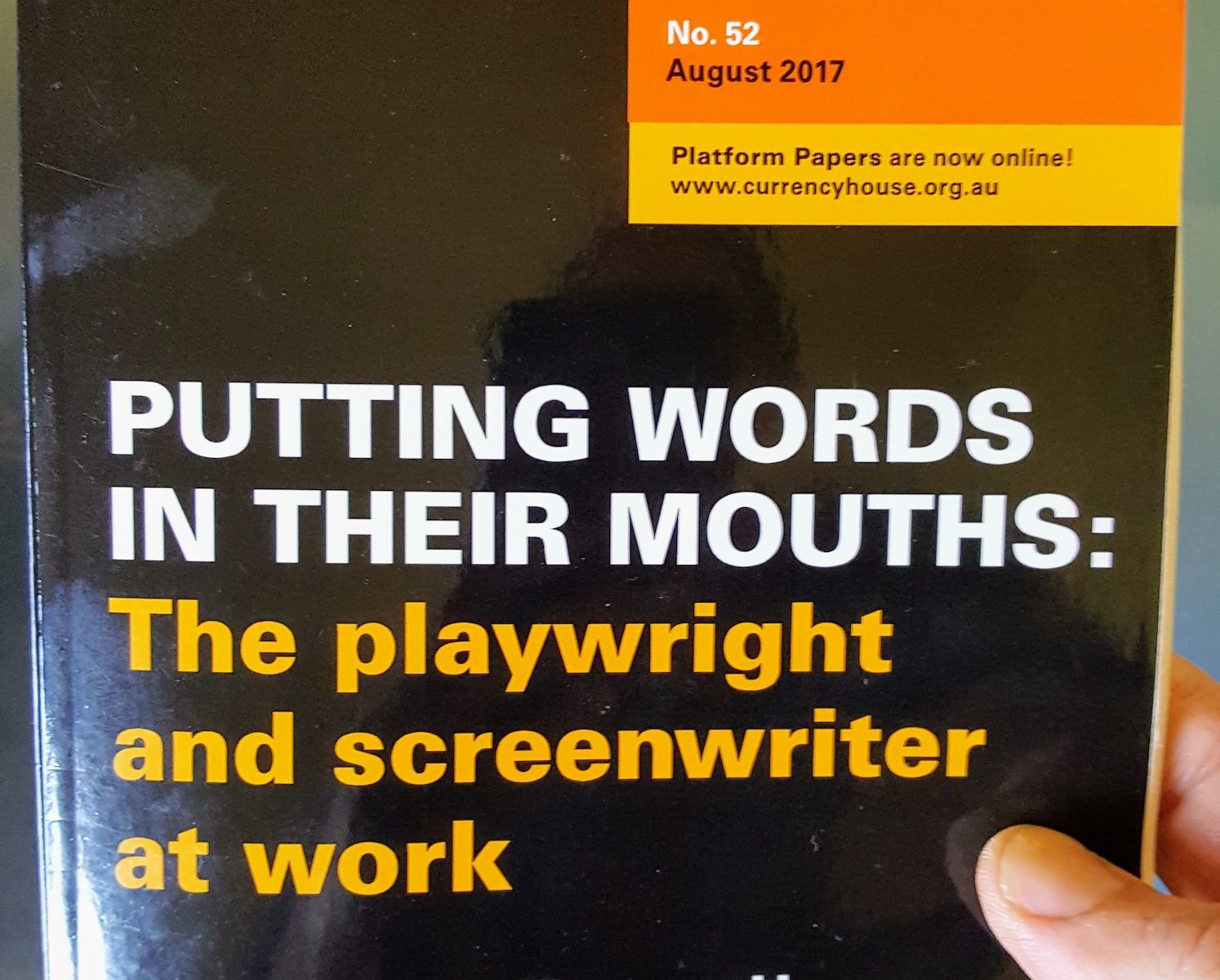As a playwright, screenwriter or novelist, are you more a sculptor or a tiler?
My maternal grandfather, Harry, worked as a master tiler. Tiling obsessed him. Even after he retired, he kept a collection from his working life of favourite tiles, in a separate shed.
Walking with Harry was to experience the world through a builder’s eye. Enter a shopping mall and he would stop at the entrance, look at the layout, inspect the grouting then marvel at the scale or difficulty of the floor.
He was the sort of man whose determined interests kept automatic doors from closing.
He drove past buildings in his home city of Geelong and pointed them out. “Did the floor of that one… did a bathroom there… that one, never really happy with the wall there.” These would be jobs completed up to fifty or sixty years previously. He felt horrible about having charged a customer full price when he felt that he’d made an error, probably one of the few tradespeople to argue against customers who wanted to pay the full rate. Often, the errors he worried about weren’t even noticeable if at all visible. But he knew… he knew…
When I was about 20, I tried to tell him that I wanted to be a playwright.
This worried me, because Harry sometimes fumed at the television when a scene finished in one location and then cut to another. He accepted cuts for the news, but in drama it confounded him. I worried that maybe drama confounded him, full-stop. So I wasn’t sure how he’d respond to my writing urge.
I did my best. Something about giving words to actors, directors and technicians so they could put on a show, or display something of the world as I saw it.
“Oh, right,” he said. He took me outside and lit a cigarette. (He’d smoked since he was 11.) “Right. So, playwriting is a lot like tiling.”
“How’s that, grandpa?”
“You have to make sure you build something solid so that other people can walk all over it.”
–
Many years later, I tried to remember what Harry did as a tiler, and learned to tile a kitchen floor. I had a sort of sense memory from watching him do things when I was really tiny, plus I had the internet.
But I wanted to prove I could do it, and in a weird way I suppose I wanted to see if tiling really was anything like playwriting.
When I first imagined tiling a floor, I thought, tile, trowel, adhesive, grouting – done.
But those actions, the application of tile to adhesive to floor, etc., while crucial take up the least amount of time.
There’s the planning, the choice of tiles – the formatting, if you like.
There’s also the setting up of the space before you place a tile.
And then once you mix the adhesive, you only have about half an hour to use it before it goes. Goes… not sure what the proper word for that is, but it’s even trickier to deal with than leaving out a tub of ice-cream.
Which means that, once you have done the work of putting down the things that people actually see and stand and walk upon, you spend about five times as long cleaning up tools and space, worried about errors large or small or unseen.
–
The words that a playwright lays down in the moment only take as long as they do to type. Obviously. And truly.
Before those moments, though, for me at least, come hours and weeks of thought and reconsideration. I tend to write my dialogue and stage directions fairly quickly – er, yeah, as quickly as it is to write or to type them – but that’s the apex of the work. The more thoroughly I prepare the less scared and more confident I am.
Afterwards, the cutting and finishing and fixing is only messy if I neglected something in the preparation.
Grandpa Harry never got to see a play of mine produced. He certainly never got to see the floor I tiled. And he was right. A play has to withstand human forces while supporting a parade of humanity to march on.
Sometimes, when I enter a theatre to see a show, I think of him, and look for the joins and reason in the work that builds itself through time and our presence as an audience. I’ll marvel at the scale and difficulty, I’ll feel guilty for mistakes I feel I’ve made in the past and try to remember that a master tiler is never jealous of other tilers’ jobs.
–
Photo by Robert Nelson on Unsplash










